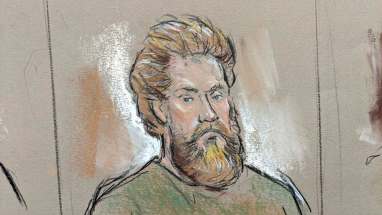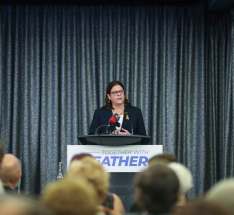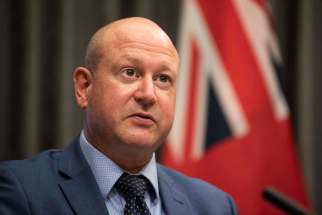Neo-Nazi’s views repugnant, but he deserves ‘second chance,’ U.S. defence lawyer argues Unsealed sentencing memorandum calls prosecution request for 25-year prison term 'grossly disproportionate,' says Patrik Mathews talked about terrorist attack, but didn't commit one
Read this article for free:
or
Already have an account? Log in here »
To continue reading, please subscribe:
Monthly Digital Subscription
$0 for the first 4 weeks*
- Enjoy unlimited reading on winnipegfreepress.com
- Read the E-Edition, our digital replica newspaper
- Access News Break, our award-winning app
- Play interactive puzzles
*No charge for 4 weeks then price increases to the regular rate of $19.00 plus GST every four weeks. Offer available to new and qualified returning subscribers only. Cancel any time.
Monthly Digital Subscription
$4.75/week*
- Enjoy unlimited reading on winnipegfreepress.com
- Read the E-Edition, our digital replica newspaper
- Access News Break, our award-winning app
- Play interactive puzzles
*Billed as $19 plus GST every four weeks. Cancel any time.
To continue reading, please subscribe:
Add Free Press access to your Brandon Sun subscription for only an additional
$1 for the first 4 weeks*
*Your next subscription payment will increase by $1.00 and you will be charged $16.99 plus GST for four weeks. After four weeks, your payment will increase to $23.99 plus GST every four weeks.
Read unlimited articles for free today:
or
Already have an account? Log in here »
Hey there, time traveller!
This article was published 20/10/2021 (1511 days ago), so information in it may no longer be current.
Patrik Mathews’ defence attorney is asking a U.S. federal judge to sentence the neo-Nazi and disgraced Canadian reservist to a 33-month prison sentence, even as he concedes his client held beliefs “many would find repugnant.”
Lawyer Joseph Balter argues in a newly unsealed sentencing memorandum that the prosecution’s request for 25 years for Mathews and his co-accused, Brian Lemley Jr., is “grossly disproportionate.”
“Mr. Mathews and Mr. Lemley were law-abiding citizens prior to the instant (offence) and served in their country’s militaries. They deserve a second chance to return to their families and resume their lives,” Balter wrote.
“The government’s recommended sentence serves no purpose than to utterly destroy the defendants’ lives.”
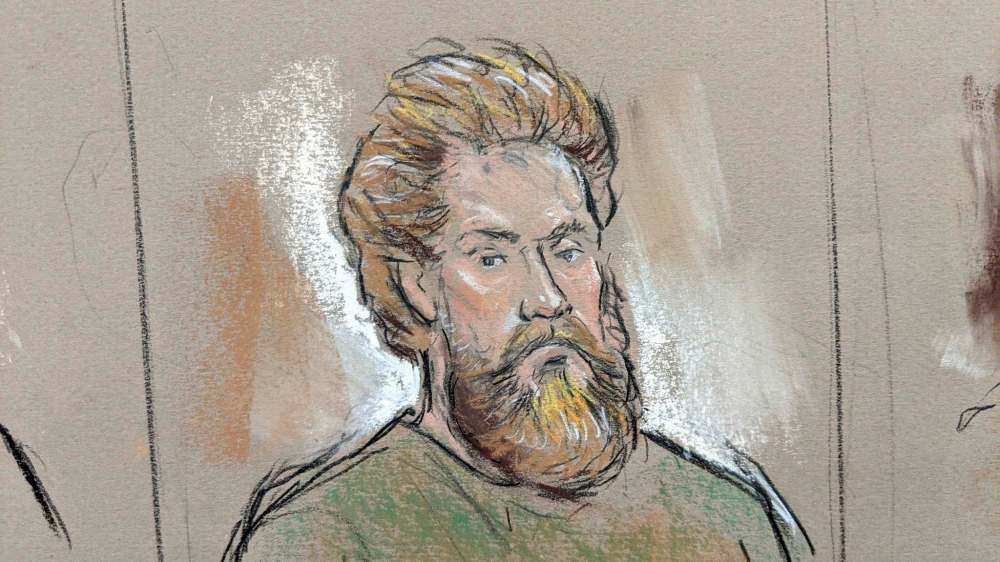
The Winnipeg Free Press exposed Mathews as an active combat engineer in the Canadian military who was moonlighting as a recruiter for a violent neo-Nazi group called the Base in August 2019.
After being exposed, Mathews fled the country, illegally crossing over into the U.S., where he met up with neo-Nazi comrades, including Lemley, and participated in paramilitary training events.
The two men were arrested by the FBI in January 2020 and have been in custody since. Investigators allege Mathews and Lemley planned to perpetrate a terror attack on a pro-gun rights rally in Richmond, Va., on Jan. 20, 2020.
Balter contends Mathews had no intention of travelling to Virginia, and was actually scheduled to work on the day in question.
Homegrown hate: Coverage of a neo-Nazi recruiter in Winnipeg
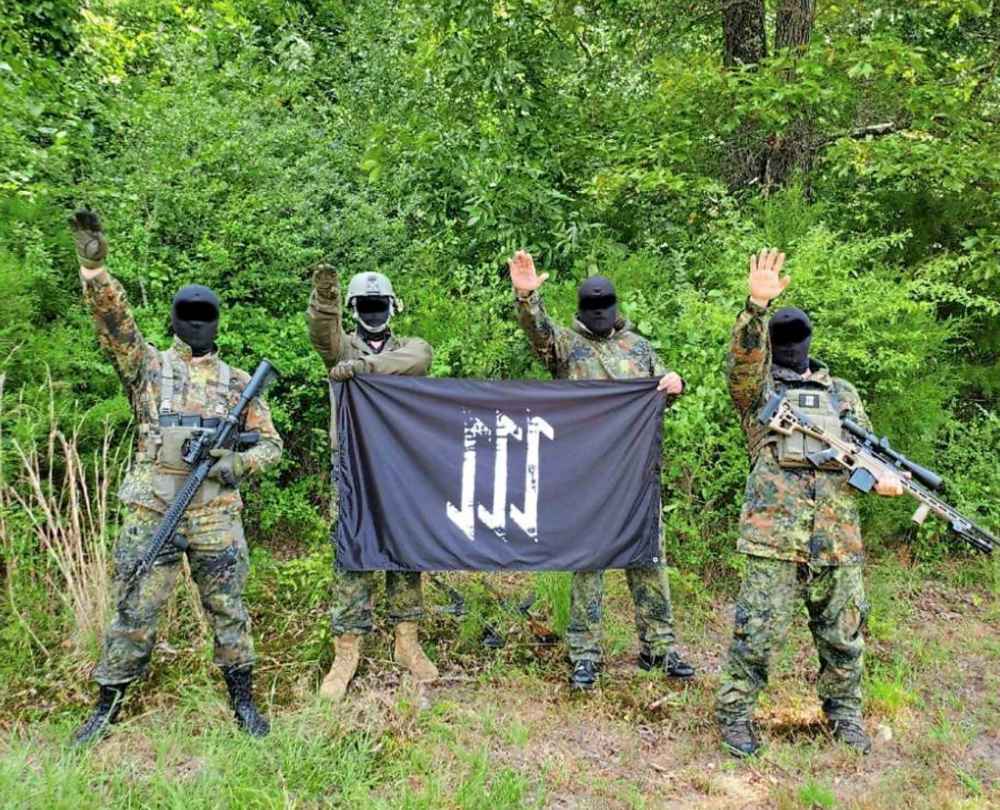
Posted:
Read Ryan Thorpe's story on infiltrating a neo-Nazi paramilitary group, and the Free Press' follow-up coverage.
On June 11, Mathews and Lemley pleaded guilty to various felonies. They are scheduled to be sentenced in the United States District Court for the District of Maryland next Thursday.
Mathews pleaded guilty to transporting a firearm and ammunition interstate with intent to commit a felony, obstruction of justice and two counts of being an illegal alien in possession of a firearm and ammunition.
Lemley pleaded guilty to, among other charges, conspiracy to transport an illegal alien, disposing of a firearm and ammunition to an illegal alien, transporting a firearm and ammunition interstate with intent to commit a felony and obstruction of justice.
At question is whether the court will impose stiffer sentences on the two men on the basis of terrorism enhancements. The prosecution and defence will argue their positions Monday in a pre-sentencing hearing.
Balter argues that while the evidence in the case demonstrates that Mathews and Lemley were white supremacists,” they did not actually develop a concrete plan to commit an act of terrorism.
“(Their) conversations were replete with virulent hate speech and references to imagined acts of violence against property, minorities and government. However, the government’s conclusion that the conversations evinced the request intent is wrong,” he writes.
“The content of the conversations showed there were no plans to carry out any crime of terrorism…. The intercepted conversations contain hate speech and advocacy of violence that are protected speech under the First Amendment to the United States Constitution.”
“The content of the conversations showed there were no plans to carry out any crime of terrorism…. The intercepted conversations contain hate speech and advocacy of violence that are protected speech under the First Amendment to the United States Constitution.”
– Patrik Mathews’ defence attorney Joseph Balter
Balter also claims an undercover FBI agent who infiltrated the Base “did everything in his power to encourage the defendants to develop a plan for violence in Virginia,” but that ultimately they did not.
“(Their) conversations are replete with Mr. Mathews’ political opinions about race, anti-Semitism, and advocacy for anti-government and political violence. Mr. Mathews’ speech itself cannot be the subject of prosecution,” Balter writes.
“While the defendants talked, they did not act… (Mathews has) accepted responsibility for his conduct and is remorseful.”
The prosecution filed a response to the defence attorneys’ sentencing requests, claiming their request for a 33-month term of imprisonment is “untethered to the facts” in the case.
“The First Amendment has nothing to do with this case. Speech and written words can prove intent and rationale behind criminal plans,” the prosecution writes.
“Mathews didn’t illegally cross the border on a whim. Lemley didn’t ferry Mathews throughout the country out of some misguided sense of altruism. Lemley and Mathews didn’t assemble an assault rifle out of the goodness of their hearts.”
– The prosecution
The prosecution denies there was no “plan” to commit an act of terrorism, claiming Mathews and Lemley had developed various plans, “both general and specific,” intended to achieve desired political outcomes.
“Mathews didn’t illegally cross the border on a whim. Lemley didn’t ferry Mathews throughout the country out of some misguided sense of altruism. Lemley and Mathews didn’t assemble an assault rifle out of the goodness of their hearts,” the prosecution writes.
“The guns they possessed weren’t for sport or collecting. Lemley could have walked into any federal firearms licensee and legally purchased any firearm; instead, he chose to help an alien construct one that couldn’t be traced.”
The prosecution claims the defence sentencing memos “do an expert job trying to humanize the defendants — to paint full portraits of damaged individual lives and loving extended families — instead of focusing on the criminal conduct that brought (them) before the court.”
“The defendants ask for a leniency they never contemplated showing those they intended to murder, terrorize, and humiliate.”
ryan.thorpe@freepress.mb.ca
Twitter: @rk_thorpe

Ryan Thorpe likes the pace of daily news, the feeling of a broadsheet in his hands and the stress of never-ending deadlines hanging over his head.
Our newsroom depends on a growing audience of readers to power our journalism. If you are not a paid reader, please consider becoming a subscriber.
Our newsroom depends on its audience of readers to power our journalism. Thank you for your support.
History
Updated on Wednesday, October 20, 2021 9:48 PM CDT: Fixes typo.





